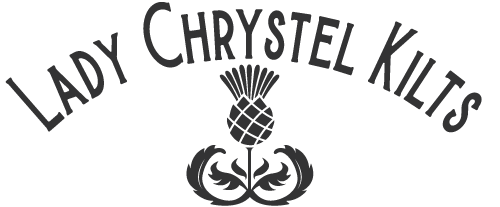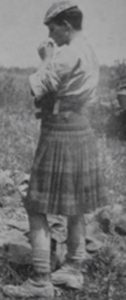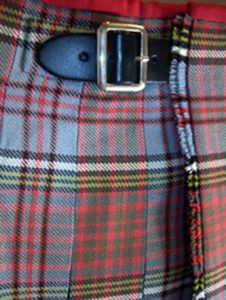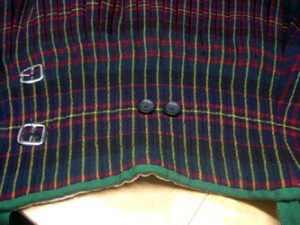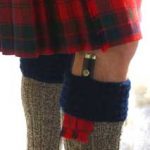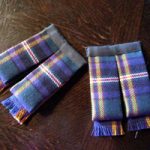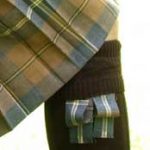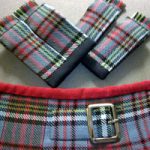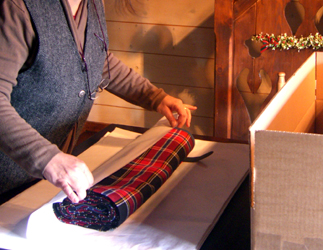
What is a Lady Chrystel Kilt?
Good question, isn’t it?
Kilts made individually by traditional kiltmakers are generally bespoke, custom made kilts.
First thing to know is that a Lady Chrystel kilt is made of thousands of tiny hand made stitches.
95% of your kilt will be hand-sewn.
If you have specific requests, please feel free to let me know.

Pleating the kilt
The vast majority of kilts found on the market are knife pleated kilts.
Wanting to further my investigation on kilt pleating led me to update all the historical kilt pleats such as
Box pleated kilts, Kingussie, Military Rolled, etc.
And always in this spirit of research, I have developed my own personal kilt pleating : The Double Box pleated kilt and other original creations

1852

Box Pleats

Double Box Pleats

Kingussie Pleats

Knife Pleats

French Knife Pleats

Military Rolled Pleats

Modern Pleats
The finishes of a Lady Chrystel Kilt
Hem
Because the selvage edges of many tartans are not very elegant to my eyes, I make hems to my kilts.
A beautiful kilt with edges as shown on the photo is such a sad thing .
I would add that the little extra weight brought by the hem gives the kilt a nice drop.
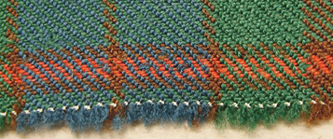
Canvas
I use the same type of canvas to double the kilt inside at the waist and for inside finishes.
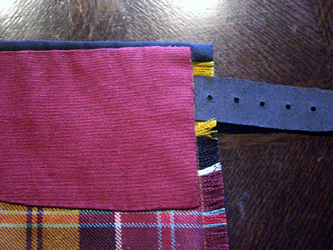
Top band
For many things, I was inspired by ancient kilts that I had the opportunity
to reconstruct in my workshop or inspect in museums in Scotland.
For example, I no longer make tartan top bands. If it’s easy to match the stripes with the front apron, it is impossible in the back and I dislike it.
So I prefer adding top quality canvas, matching the colors of the tartan, resistant to UV and the strong heat that requires the making of a kilt.
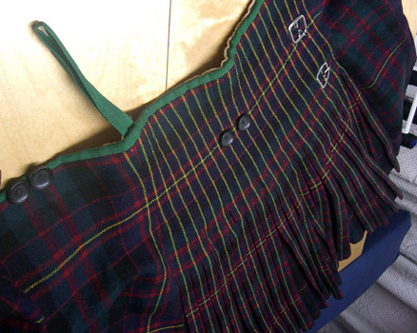
Apron
Finishes are a bit of an obsession for me!
In most market kilts, aprons,
top apron and under apron alike, are lined only half way or even less.
I line mine in full, with the same tartan as your kilt.
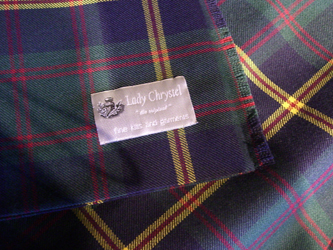
Belt loops
I don’t make belt loops on my kilts. Nope !
It distorts them and it’s not the belt that holds the kilt.
Of course, if you insist on having them, I will make them for you, just let me know.
I know belt loops are necessary for pipe-band drummers who need to put their sporran sideways.
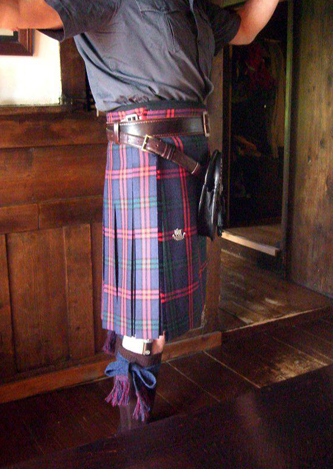
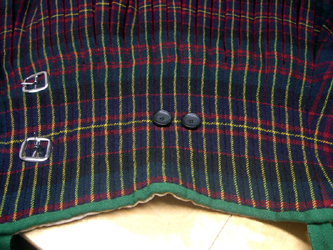
Straps
In the past, military kilts rose very high under the chest.
That’s why they needed two straps of leather to close them properly.
Today, putting two straps is useless, they will simply create tension on your top apron eventually ending in warping the kilt.
So, like the great kiltmaker Matthew Newsome does, I sew one strap on the outside and one strap on the inside. This second inner strap is perfectly invisible on the top end of the kilt.
It does not go through the apron, as on commercial kilts ,
with a fragile button hole which I find unsightly and which also risks deforming the kilt.
When my customers notice this difference, they always find it more convenient. The look of the kilt is much improved and it brings better comfort.

Shipping
I put a lot of care into packing my kilts.
I wrap them in tissue paper and then in a rigid cardboard box that can go around the world.
Each package is sent with maximum insurance, unless you specify otherwise to avoid customs fees.
